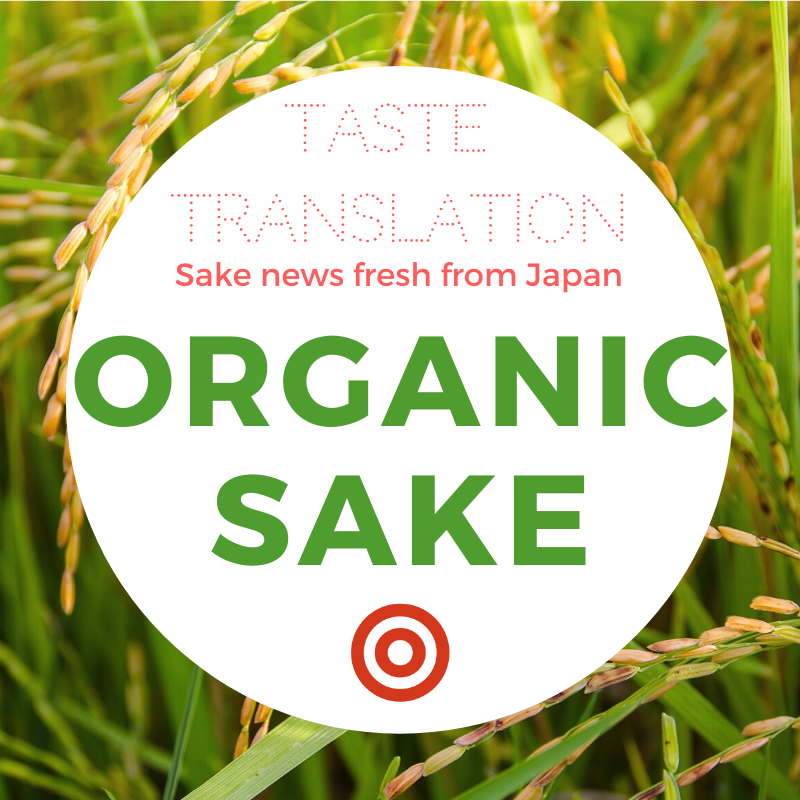
Bio, organic, natural… these related terms have slightly different definitions but all are intimately familiar to people in the wine world. When it comes to sake, though, they’re relatively unknown.
Niconico News covers the organic sake selection at the The Japan Sake and Shōchū (JSS) Information Center in Toranomon, Tokyo, which regularly seeks out new ways of drinking and enjoying sake to extend its appeal to even more drinkers.
It calls these sake made with organic cultivation “bio sake” and currently has a limited quantity for tasting and sale. [French and German use “bio” as short for “biologique”, the equivalent of “organic” in English.]
A number of breweries in Japan have released sake made by organic production methods. However, the JSS Information Center is the only place offering 10 bio sake, thanks to its links with the 1,730 breweries across the country. The average price for tasting is JPY 100 for 30 ml, although it varies by producer.
With that out of the way, what does organic sake taste like? Here are four out of the range of 10 available at the JSS.
Senkin Organic Nature (Tochigi Prefecture)
Made from organic Kame-no-o rice grown in Sakura City, Tochigi Prefecture, this authentic kimoto is brewed by yeast naturally present in the brewery, with no yeast or anything else added, for a truly natural fermentation. The sake is fragrant, with aromas reminiscent of walnut and mellow flavours that expand across the palate.
The name “Senkin” refers to the crane, a bird revered as a divine messenger, and the label is decorated with a modern-art rendition of a crane.
Terada Honke Go-nin Musume (Chiba Prefecture)
Terada Honke are well known as advocates of natural food, and for allowing brewing to happen with minimal intervention. They use sake-specific rice varieties grown without agrochemicals and are masters of the ancient kimoto style of brewing.
Go-nin Musume [Five Daughters, a reference to the lack of men in the family line – a lot of men were adopted in upon marriage] has strong umami flavour and rich aroma, and its depth of flavour makes it a mainstay of the Terada Honke range.
Fukumitsuya Inori to Minori Kinmonnishiki (Ishikawa Prefecture)
Fukumitsuya grow and use only their own organic Kinmonnishiki, also known as a “phantom sake rice” for the effort involved in cultivating it in areas with heavy snowfall. The painstakingly brewed Inori to Minori Kinmonnishiki has a deceptively deep, sweet aroma which belies the bitterness of the taste.
The label was designed by Akira Minagawa, founder of fashion and textile brand Mina Perhonen.
Tsujun Shuzō Sakuya (Kumamoto)
The venerable Tsujun Shuzō are based in Yamato, Kumamoto, an area blessed with crystal clear hard water and good-quality rice. This junmai is made purely with organic rice grown under contract, and boasts strong acidity and umami – a classic mountain village sake.
A “bio sake set” featuring three sake costs between JPY 300 and JPY 500, depending on the selection on the day. Try the tasting set to find out which type you like best, and then you can pick up a bottle. All are available in limited quantities, so the tasting sets will no longer be offered once they run out.
The JSS Information Center is open Monday to Friday, 10:00 – 18:00, closed weekends, holidays and year end/new year.
Links
- Original article (Japanese, Niconico News, 16 November 2019)
- Japan Sake and Shōchū Information Center (English)
Want Japanese sake news straight to your inbox?
The translations/summaries of Japanese language news articles and other content provided on this site are part of a personal project to increase the amount of information about Japanese sake available in English.
Coverage of an organisation, product or event does not in any way imply approval or endorsement.
All translations/summaries and other content are © 2017-2021 Arline Lyons.